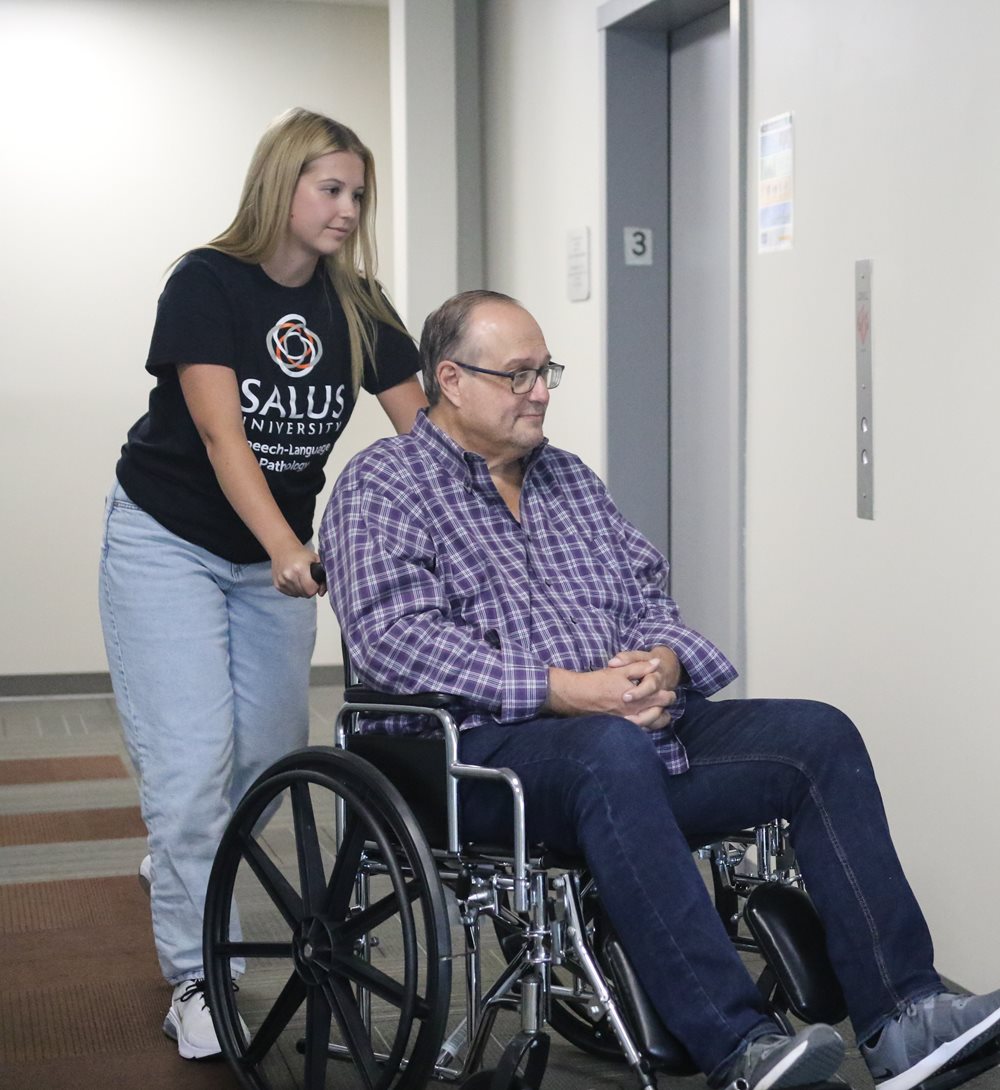Understanding Alzheimer’s Disease
Alzheimer’s is a degenerative brain disease caused by complex brain changes following cell damage. It leads to dementia symptoms that gradually worsen over time. Alzheimer’s disease is the most common type of dementia. According to the Centers for Disease Control and Prevention (CDC), current estimates are that about 5.8 million people in the United States have Alzheimer’s disease and related dementias. This number is projected to nearly triple to 14 million people by 2060. Alzheimer’s disease is currently ranked as the sixth leading cause of death in the United States.
 Though the greatest known risk factor for Alzheimer’s is increasing age, the disease is not a normal part of aging. And, though most people with Alzheimer’s are 65 and older, approximately 200,000 Americans under 65 are living with younger-onset Alzheimer’s disease.
Though the greatest known risk factor for Alzheimer’s is increasing age, the disease is not a normal part of aging. And, though most people with Alzheimer’s are 65 and older, approximately 200,000 Americans under 65 are living with younger-onset Alzheimer’s disease.
Stages of Alzheimer's Disease
Alzheimer’s disease slowly gets worse over time. People with this disease progress at different rates and in several stages. Symptoms may get worse and then improve, but until an effective treatment for the disease itself is found, the person’s ability will continue to decline over the course of the disease.
Mild Alzheimer’s Disease (Early Stage)
In the early stage of Alzheimer's, a person may function independently. He or she may still drive, work and be part of social activities. Despite this, the person may feel as if he or she is having memory lapses, such as forgetting familiar words or the location of everyday objects.
As Alzheimer’s worsens, people experience greater memory loss and other cognitive difficulties. Problems can include getting lost, trouble handling money and paying bills, repeating questions, taking longer to complete normal daily tasks, and personality and behavior changes. People are often diagnosed in this stage.
Moderate Alzheimer’s Disease (Middle Stage)
Middle-stage Alzheimer's is typically the longest stage and can last for many years. As the disease progresses, the person with Alzheimer's will require a greater level of care.
Damage to nerve cells in the brain can make it difficult for the person to express thoughts and perform routine tasks without assistance. In this stage, damage occurs in areas of the brain that control language, reasoning, conscious thought, and sensory processing, such as the ability to correctly detect sounds and smells. Memory loss and confusion grow worse, and people begin to have problems recognizing family and friends. They may be unable to learn new things, carry out multistep tasks such as getting dressed, or cope with new situations. In addition, people at this stage may have hallucinations, delusions, paranoia and may behave impulsively.
Severe Alzheimer’s Disease (Late Stage)
 In the final stage of the disease, dementia symptoms are severe. Individuals lose the ability to respond to their environment, to carry on a conversation and, eventually, to control movement. As memory and cognitive skills continue to worsen, significant personality changes may take place and individuals need extensive care. Ultimately, plaques and tangles spread throughout the brain, and the brain tissue shrinks significantly. People with severe Alzheimer’s cannot communicate and are completely dependent on others for their care. Near the end of life, the person may be in bed most or all of the time as the body shuts down.
In the final stage of the disease, dementia symptoms are severe. Individuals lose the ability to respond to their environment, to carry on a conversation and, eventually, to control movement. As memory and cognitive skills continue to worsen, significant personality changes may take place and individuals need extensive care. Ultimately, plaques and tangles spread throughout the brain, and the brain tissue shrinks significantly. People with severe Alzheimer’s cannot communicate and are completely dependent on others for their care. Near the end of life, the person may be in bed most or all of the time as the body shuts down.
Diagnosing Alzheimer’s
Doctors use several methods and tools to help determine whether a person who is having memory problems has Alzheimer’s disease.
To diagnose Alzheimer’s, doctors may:
- Ask the person and a family member or friend questions about overall health, use of prescription and over-the-counter medicines, diet, past medical problems, ability to carry out daily activities, and changes in behavior and personality.
- Conduct tests of memory, problem solving, attention, counting, and language.
- Carry out standard medical tests, such as blood and urine tests, to identify other possible causes of the problem.
- Perform brain scans, such as computed tomography (CT), magnetic resonance imaging (MRI), or positron emission tomography (PET), to support an Alzheimer’s diagnosis or to rule out other possible causes for symptoms.
These tests may be repeated to give doctors information about how the person’s memory and other cognitive functions are changing over time.
 Treating Alzheimer’s
Treating Alzheimer’s
Medical management can improve quality of life for individuals living with Alzheimer’s disease and for their caregivers. There is currently no known cure for Alzheimer’s disease. Treatment addresses several areas:
- Helping people maintain brain health.
- Managing behavioral symptoms.
- Slowing or delaying symptoms of the disease.
It’s not easy to see a loved one’s memory fade but there are a variety of medical professionals who can assist those with Alzheimer’s including speech-language pathologists (SLPs).
The Speech-Language Institute’s (SLI) certified SLPs can assist individuals with Alzheimer’s from beginning to end stages and also throughout the various levels of its progression. They can help identify strengths and deficits in cognitive, communication, speech, language and swallowing abilities. SLPs can also provide customized treatment plans, focused on quality of life and independence. The goal is to increase communication in all forms, including verbal, reading, gesturing and writing. They also work with caregivers, providing resources and support to overcome the difficulties people living with Alzheimer’s can experience in their daily lives.
For more information or to schedule an evaluation at SLI, call 215.780.3150